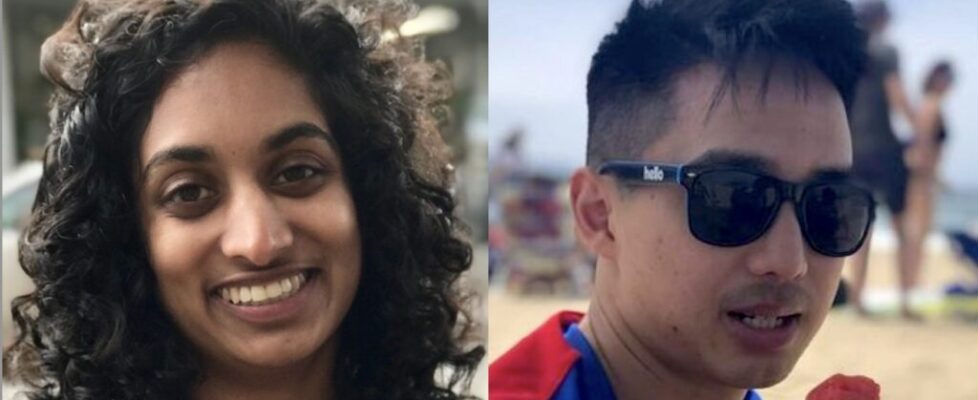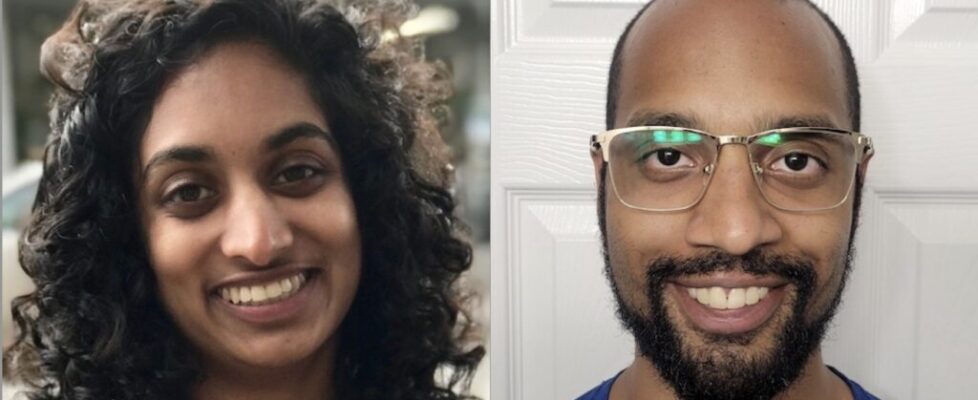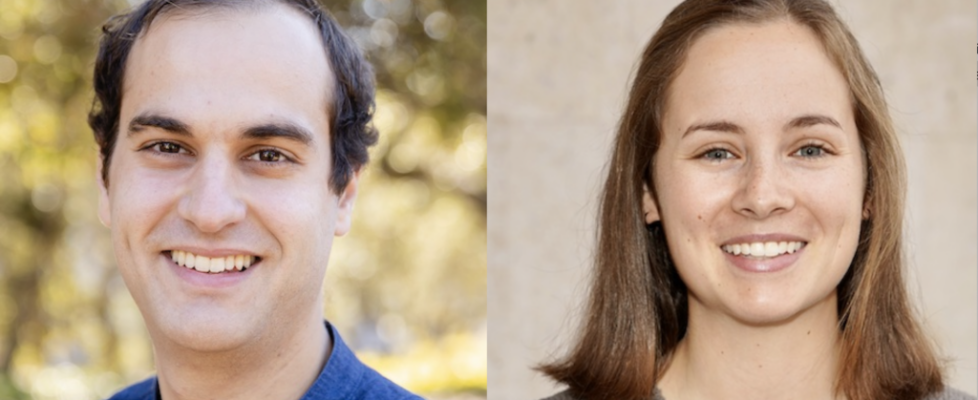Smartphone Seismology & Histamine Neurology – May 27
Wonderfest Science Envoys are early-career researchers with enhanced communication skills and aspirations. Following short talks on provocative modern science topics, these two Science Envoys will answer questions with insight and enthusiasm:
• UC Berkeley seismologist Savvas Marcou on Smartphones Map Ground Shaking in Our Neighborhoods — California is earthquake country. Everyone would love to know how much shaking the next temblor will deliver to their neighborhood. Fortunately, the humble smartphone, available in everyone’s pockets, can record and map ground shaking patterns in unprecedented resolution, and may transform how we think about the next big earthquake.
• Stanford neuroscientist Ashley Moses on Rethinking Histamine: From Molecule to Motivation — Though primarily known for its role in allergies, histamine influences cognition, mood, and sleep, as well. In fact, this understudied molecule is indispensable for brain health. By studying histamine’s role in motivated behaviors, we can uncover groundbreaking insights into neurological problems like depression, Parkinson’s Disease, and stress disorders.
This interactive science presentation, free and unticketed, is produced by Wonderfest in partnership with Marin Science Seminar.
Marin Science Seminar [https://marinscienceseminar.com]

Next Scientist #1 – Nov 2
Next Scientist is a new Wonderfest series of online presentations. Every Next Scientist Zoom consists of two 30-minute presentations (including 10 minutes of Q&A), each featuring a young researcher describing next-level science:
UC Berkeley seismologist Sarina Patel on Earthquake Science Using Crowdsourced Data from Smartphones — MyShake is a free citizen-science smartphone app that delivers earthquake early warnings(!) to users in California, Oregon, and Washington. It also uses a phone’s vibration sensor to record earthquake motion for scientific analysis. How can the gadget in your pocket contribute to earthquake early warning, shake-hazard mapping, and structural-health monitoring?
Exelixis medical chemist Trevor Chang on Advances in Cancer Treatment: Synthetic Lethality — Chemotherapy is a standard component of both the treatment and study of cancer. Conventional chemotherapeutic agents are toxic to cells, underscoring the continued focus on precision medicines. Research in synthetic lethality aims to develop medicines that target specific genetic mutations expressed only in cancer cells while sparing healthy cells.
This free, online, science presentation is produced by Wonderfest in partnership with the Castro Valley Educational Foundation and Castro Valley Science.
What value does this experience — and these insights — have for YOU? Accordingly, please support nonprofit Wonderfest, the Bay Area Beacon of Science, by donating via the Eventbrite space, below.

Earthquakes; Gene Engineering – Apr 5
Wonderfest Science Envoys are early-career researchers with special communication skills and aspirations. Following short talks on provocative modern science topics, these two Science Envoys will answer questions with insight and enthusiasm:
• UC Berkeley seismologist Sarina Patel on Earthquake Science Using Crowdsourced Data from Smartphones — MyShake is a free citizen-science smartphone app which has been downloaded globally 2.5 million times. MyShake delivers earthquake early warnings(!) to users in California, Oregon, and Washington. It also uses the vibration sensor built into all smartphones to record earthquake motion for scientific analysis. How can the gadget in your pocket contribute to earthquake early warning, shake-hazard mapping, and structural-health monitoring?
• Stanford biophysicist Kevin Aris on Genetic Engineering Refined with Single-Molecule Microscopes — CRISPR enzymes allow precise genetic engineering, cleaving DNA molecules to improve the health and function of organisms. However, naturally compact and twisted pieces of DNA, under stress due to mechanical deformation, are tough to cut precisely. Single-molecule microscopy helps us design novel CRISPR enzymes that become highly-accurate molecular scissors — new tools for beneficial gene modification.
Berkeley Public Library [https://www.berkeleypubliclibrary.org]
This free, online, science presentation is produced by Wonderfest in partnership with the Berkeley Public Library.
What value do these science insights have for you? Accordingly, please consider making a donation to nonprofit Wonderfest via the Eventbrite box, below. (Note: No "sales" or "tickets" are involved; it's just a thoughtful contribution to help Wonderfest promote science understanding and the scientific outlook.)

